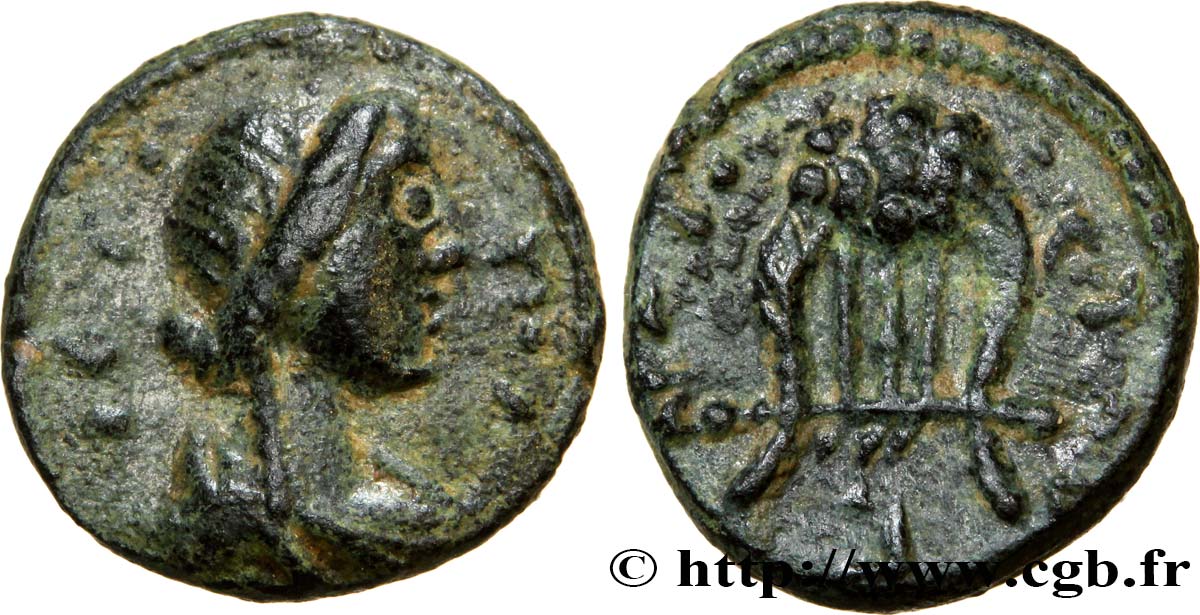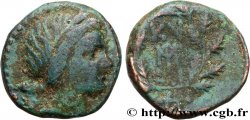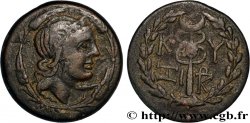bpv_352668 - MYSIA - CYZICUS Hemichalque
недоступный.
Товар уже продан в нашем интернет-магазине (2015)
Цена: : 175.00 €
Товар уже продан в нашем интернет-магазине (2015)
Цена: : 175.00 €
Тип Hemichalque
Дата: Ier siècle avant J.-C. - Ier siècle après J.-C.
Монетный двор / Город: Cyzique, Mysie
Металл: copper
Диаметр: 11 mm
Ориентация осей монеты: 3 h.
Вес: 0,92 g.
Редкость: R2
Комментарии о состоянии
Exemplaire sur un petit flan bien centré des deux côtés. Beau portrait. Revers inhabituel. Patine vert foncé
Ссылки в каталоге: :
Происхождение:
Cet exemplaire provient de MONNAIES XXVIII, n° 56 et de la collection d’Élisabeth
Лицевая сторона
Аверс: описание: Buste diadémé et drapé de Koré à droite.
Обратная сторона
Реверс: Описание: Cithare formée à partir d’une carapace de tortue.
Реверс: легенда: K/I-Z/I.
Комментарий
Semble complètement inédit et non répertorié pour ce module et ce type. Sur notre exemplaire, nous semblons distinguer des lettres au droit qui ne peuvent pas être assimilées au grènetis. Le portrait semble féminin et ne peut pas être assimilé à Apollon (RPC. 2239). La pièce bien que parfaitement conservée semble tréflée ou brouillée sur la légende.








 Cообщить об ошибке
Cообщить об ошибке Распечатать страницу
Распечатать страницу Отправить мой выбор
Отправить мой выбор Задать вопрос
Задать вопрос Consign / sell
Consign / sell
 Информация
Информация